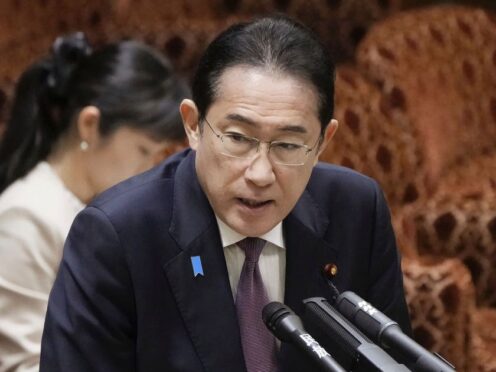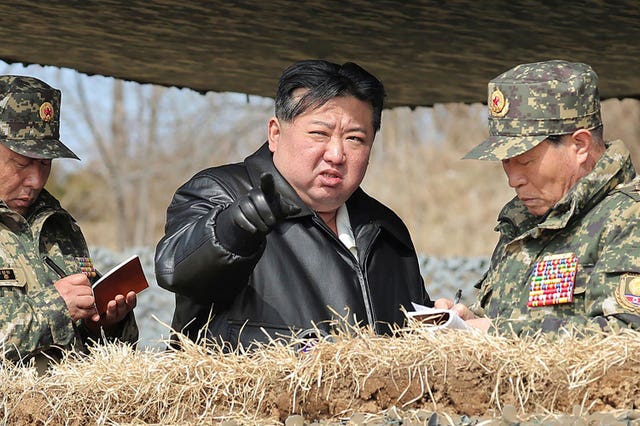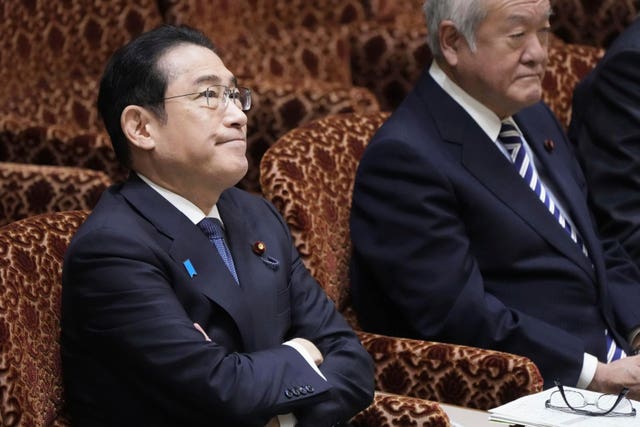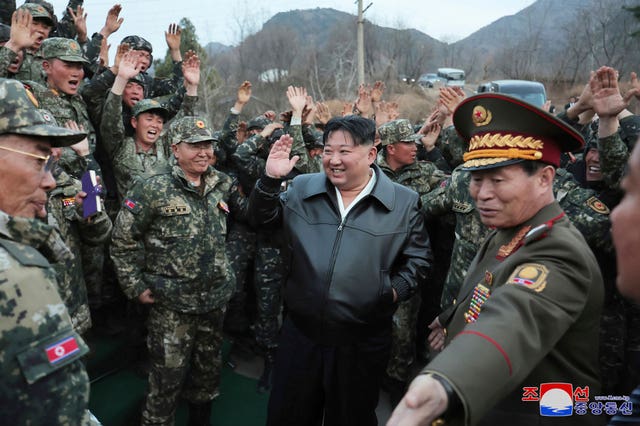
North Korea has said Japanese Prime Minister Fumio Kishida has proposed a summit with leader Kim Jong Un.
North Korea stressed that prospects for their countries’ first summit in 20 years would depend on Tokyo tolerating its weapons program and ignoring its past abductions of Japanese nationals.
Japan acknowledged it has been trying to arrange a bilateral summit but dismissed North Korea’s preconditions as “unacceptable”, dimming the likelihood of a quick realisation of the Kishida-Kim meeting.

Observers say Mr Kim wants improved ties with Japan as a way to drive a wedge between the US and its allies, while Mr Kishida wants to use possible progress in the abduction issue, a highly emotional issue for Japan, to boost his declining approval rating at home.
After admitting in 2002 that it had abducted 13 Japanese nationals, North Korea allowed five to return home but said the others had died. Japan believes some were still alive.
In a statement, Mr Kim’s sister and senior official, Kim Yo Jong, said in a statement that Mr Kishida recently used an unspecified channel to convey his position that he wants to meet Mr Kim in person “as soon as possible”.
She said there would be no breakthrough in North Korea-Japan relations as long as Mr Kishida’s government is engrossed in the abduction issue and interferes in the North’s “exercise of our sovereign right”, apparently referring to the North’s weapons-testing activities.
Ms Kim said: “The history of the DPRK-Japan relations gives a lesson that it is impossible to improve the bilateral relations full of distrust and misunderstanding, only with an idea to set out on a summit meeting.”
“If Japan truly wants to improve the bilateral relations and contribute to ensuring regional peace and stability as a close neighbour of the DPRK, it is necessary for it to make a political decision for strategic option conformed to its overall interests,” she said.
In February, Ms Kim issued a similar statement on bilateral ties, saying North Korea was open to improving relationships with Japan and even inviting Mr Kishida to Pyongyang.
She said if Mr Kishida sticks to his push to resolve the alleged past abductions of Japanese nationals by North Korea, he cannot avoid criticism that he would only pursue talks to boost his popularity.

Mr Kishida has said previously that he believes a summit with Mr Kim is important in various ways, including solving the problem of the abducted Japanese citizens.
Mr Kishida, speaking in a parliamentary session, said that a meeting with Mr Kim is “crucial” to resolve the abduction issue and that his government has been using various channels to discuss the possible summit.
Japanese government spokesman Yoshimasa Hayashi told reporters later on Monday that dropping the abduction issue in talks with North Korea is “not acceptable”.
North Korea and Japan do not have diplomatic ties and their relations have been overshadowed by North Korea’s nuclear programme, the North’s past abduction of Japanese nationals and Japan’s 1910-45 colonisation of the Korean Peninsula.
After years of denial, in 2002 at an unprecedented summit between Kim Jong Il, the late father of Kim Jong Un, and then-Japanese Prime Minister Junichiro Koizumi, North Korea admitted its agents had kidnapped the 13 Japanese nationals.
Japan believes North Korea wanted to use them to train spies in Japanese language and culture.

Talk of a possible North Korea-Japan summit comes amid concerns that North Korea could further intensify its weapons testing activities in what is an election year both in the US and South Korea.
Experts say North Korea would aim to use an enlarged weapons arsenal to win concessions from the US such as sanctions relief.
South Korea’s Foreign Ministry said it was closely communicating with Japan on Tokyo-Pyongyang contacts and the North Korean nuclear issue.
It said that South Korea, the US and Japan are working closely together to return North Korea to a path of denuclearisation.
North Korea’s advancing nuclear and missile arsenals pose a major security threat to Japan as well as South Korea and the United States.
The three countries have expanded their trilateral training exercises in response to the North’s provocative run of weapons tests since 2022.
Japan and South Korea are two of America’s key allies in the region, together hosting about 80,000 US troops in their territories.

Enjoy the convenience of having The Sunday Post delivered as a digital ePaper straight to your smartphone, tablet or computer.
Subscribe for only £5.49 a month and enjoy all the benefits of the printed paper as a digital replica.
Subscribe